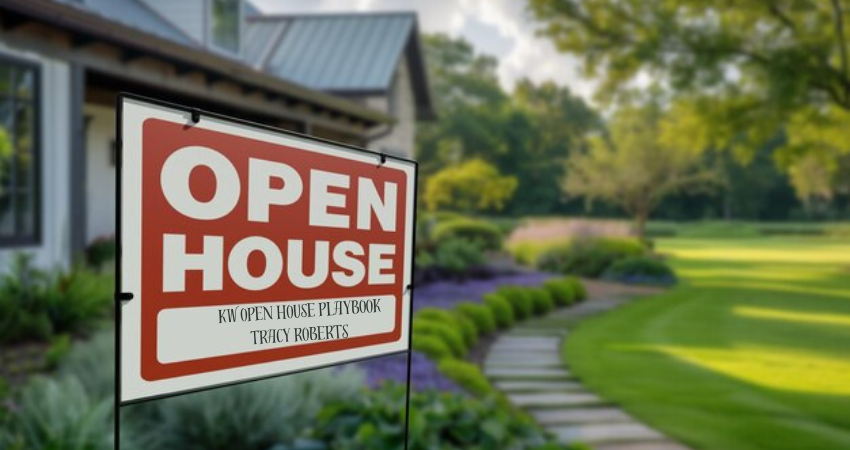In the annals of real estate, where strategies rise and fall like the shifting sands of time, there are a few rare gems that stand out, enduring beyond trends and market cycles. Among them shines kw open house playbook tracy roberts—a masterpiece, a beacon, a roadmap to connection, community, and commerce. This playbook isn’t just a manual; it’s a story etched in passion, perseverance, and purpose.
This is the tale of how an idea transcended the transactional, offering not just tools for success but a philosophy for transforming open houses into powerful stages for human connection.
The Genesis of an Idea: Tracy Roberts’ Vision
Kw open house playbook tracy roberts wasn’t just a realtor; she was a dreamer, a believer in the art of creating experiences. Early in her career, she realized that open houses had become stagnant, routine affairs. The lukewarm handshakes, the obligatory tours—it all felt transactional, devoid of soul.
What if, she wondered, an open house could be more than just a stop on someone’s weekend itinerary? What if it could be an experience that lingered, a conversation that planted seeds of trust and understanding? This question set her on a path of exploration and innovation.
In the late 1990s, as the real estate industry grappled with technological advancements and changing consumer expectations, Tracy began experimenting. She sought to weave storytelling, strategic planning, and genuine hospitality into the open house format. Slowly, a framework began to take shape—a playbook that would redefine how real estate professionals approached open houses.

Building the Blueprint: The Birth of the Open House Playbook
Tracy’s early years were marked by relentless trial and error. The kw open house playbook tracy roberts didn’t emerge overnight. It was forged in the heat of countless weekends, during which Tracy meticulously observed patterns, refined her methods, and cultivated her own blend of art and science.
She began by focusing on three core principles:
- Connection: Making every visitor feel seen, heard, and valued.
- Storytelling: Transforming properties into narratives that evoked emotion and aspiration.
- Execution: Ensuring every detail, from the scent of fresh flowers to the lighting in a room, was purposeful and inviting.
By 2003, her framework had matured. It was no longer just a set of best practices but a comprehensive system that could be replicated. She called it the Open House Playbook, a nod to its versatility and applicability for agents of all levels.
From Local Phenomenon to National Sensation
Tracy’s methods initially spread through word-of-mouth. Agents in her local market marveled at her success and sought to understand the secret behind her thriving open houses. What began as casual mentorship quickly snowballed into something greater.
By 2007, Tracy was hosting workshops, sharing her playbook with agents across the country. These sessions weren’t mere lectures; they were transformative experiences. Agents left not only with actionable strategies but also with a renewed sense of purpose and excitement for their work.
The Philosophy Behind the Playbook
What made the Open House Playbook revolutionary wasn’t just its actionable tips or its step-by-step approach. Its true power lay in its philosophy—a belief that real estate isn’t about properties; it’s about people.
Each section of the playbook emphasized this ethos:
- Preparation: Understanding the community, anticipating visitors’ needs, and crafting a narrative for the home.
- Engagement: Greeting visitors not as potential clients but as potential connections, creating a space where conversations flowed naturally.
- Follow-Up: Building relationships that extended beyond the open house, grounded in trust and authenticity.
The Impact on Real Estate Practices
The introduction of the Open House Playbook marked a paradigm shift in the industry. For decades, open houses had been viewed as a necessary but uninspiring aspect of real estate. Tracy’s methods breathed new life into the practice, transforming it into a cornerstone of lead generation and brand-building.
Agents who adopted the playbook reported staggering results. Homes sold faster, client satisfaction soared, and agents themselves found renewed joy in their work. Tracy’s principles proved adaptable, whether applied to luxury estates, suburban homes, or urban lofts.
Challenges and Triumphs: Tracy’s Journey
The road wasn’t always smooth for Tracy Roberts. As her playbook gained traction, skeptics questioned whether her methods could scale or whether they were simply the result of her personal charisma. But Tracy welcomed the scrutiny.
In 2012, she partnered with industry leaders to develop training programs, ensuring that the playbook could be effectively taught and applied by agents from diverse backgrounds. Her resilience and commitment to excellence silenced critics and solidified her legacy.
The Modern Open House: Tracy Roberts’ Enduring Legacy
Fast forward to today, and the Open House Playbook remains as relevant as ever. In an era dominated by digital marketing and virtual tours, Tracy’s principles remind us of the irreplaceable value of human connection.
The playbook has evolved, incorporating modern tools like social media strategies and data analytics, yet its heart remains unchanged. It’s a testament to Tracy’s vision that her methods continue to inspire, guiding agents to create experiences that leave lasting impressions.
Key Highlights of the Open House Playbook
For those new to Tracy Roberts’ work, here’s a glimpse into the core components of her playbook:
- Pre-Open House Strategy: Includes market research, staging tips, and promotional strategies to attract the right audience.
- Welcoming Atmosphere: Focuses on setting the tone with music, refreshments, and thoughtful details.
- Engagement Techniques: Offers scripts and conversation starters to build rapport with visitors.
- Property Storytelling: Teaches agents how to highlight unique features and create a narrative that resonates with buyers.
- Effective Follow-Up: Guides agents on how to maintain relationships and convert leads into loyal clients.
Reflections from Agents Who’ve Used the Playbook
The impact of the Open House Playbook is best captured in the words of those who’ve lived it:
- “Before I discovered Tracy’s playbook, open houses felt like a chore. Now, they’re my favorite part of the job. I’ve built lasting relationships and sold more homes than I ever thought possible.” – Sarah M., Realtor
- “Tracy’s approach reminded me why I got into real estate in the first place. It’s not about closing deals; it’s about opening doors—for families, for dreams, for connections.” – James L., Real Estate Agent
The Emotional Core of Tracy’s Work
At its core, the Open House Playbook is about more than real estate. It’s about the human experience—the shared stories, the hopes and dreams that turn a house into a home. Tracy’s work invites us to slow down, to listen, to see each interaction as an opportunity to make a difference.

FAQs About the Open House Playbook by Tracy Roberts
What inspired Tracy Roberts to create the Open House Playbook?
Tracy was driven by a desire to transform open houses into meaningful experiences, combining hospitality and strategy to foster genuine connections.
How is the playbook different from traditional open house strategies?
The playbook emphasizes storytelling, personalization, and engagement, making open houses more memorable and impactful than traditional approaches.
Can the playbook be applied in today’s digital age?
Absolutely! The playbook has evolved to include modern tools like social media promotion and virtual staging, while retaining its focus on human connection.
Is the playbook suitable for new agents?
Yes, it’s designed for agents of all experience levels, offering both foundational strategies and advanced techniques.
Where can I access the Open House Playbook?
Many real estate training programs and workshops feature Tracy’s methods. Check with industry organizations for resources.
What’s the most important takeaway from the playbook?
Real estate is about people, not just properties. Creating meaningful experiences and building relationships are at the heart of Tracy’s philosophy.
Conclusion: A Legacy of Inspiration
Kw open house playbook tracy roberts is more than a guide—it’s a gift to the real estate world. Its principles, steeped in authenticity and creativity, continue to inspire agents to this day. For those who dare to dream, who strive to connect, and who see beyond the walls of a house, the playbook serves as a timeless companion.


